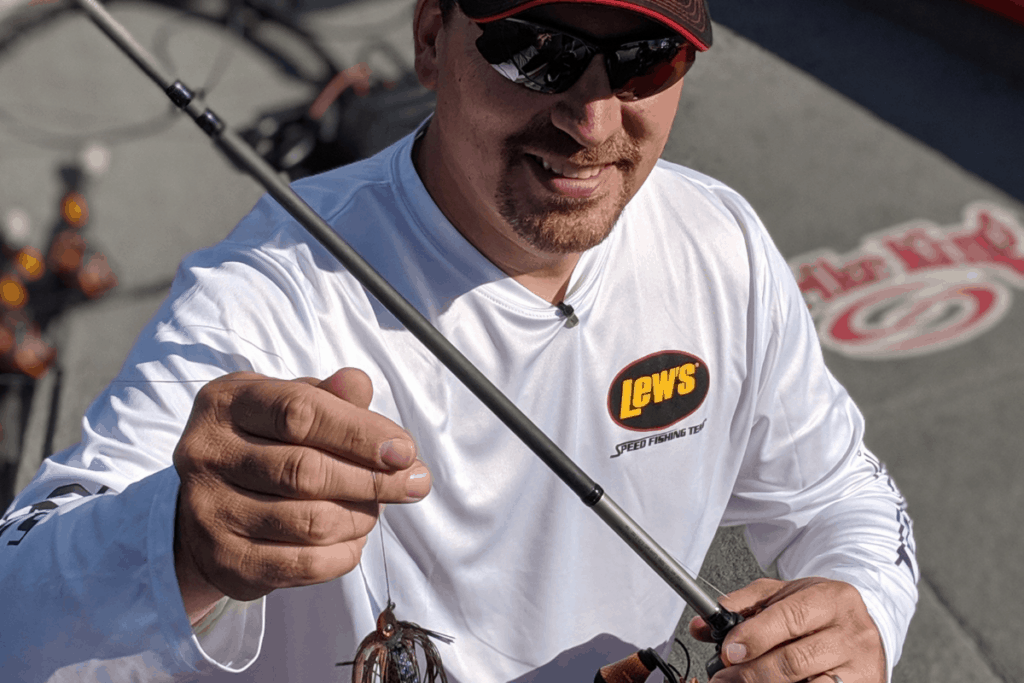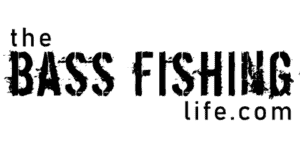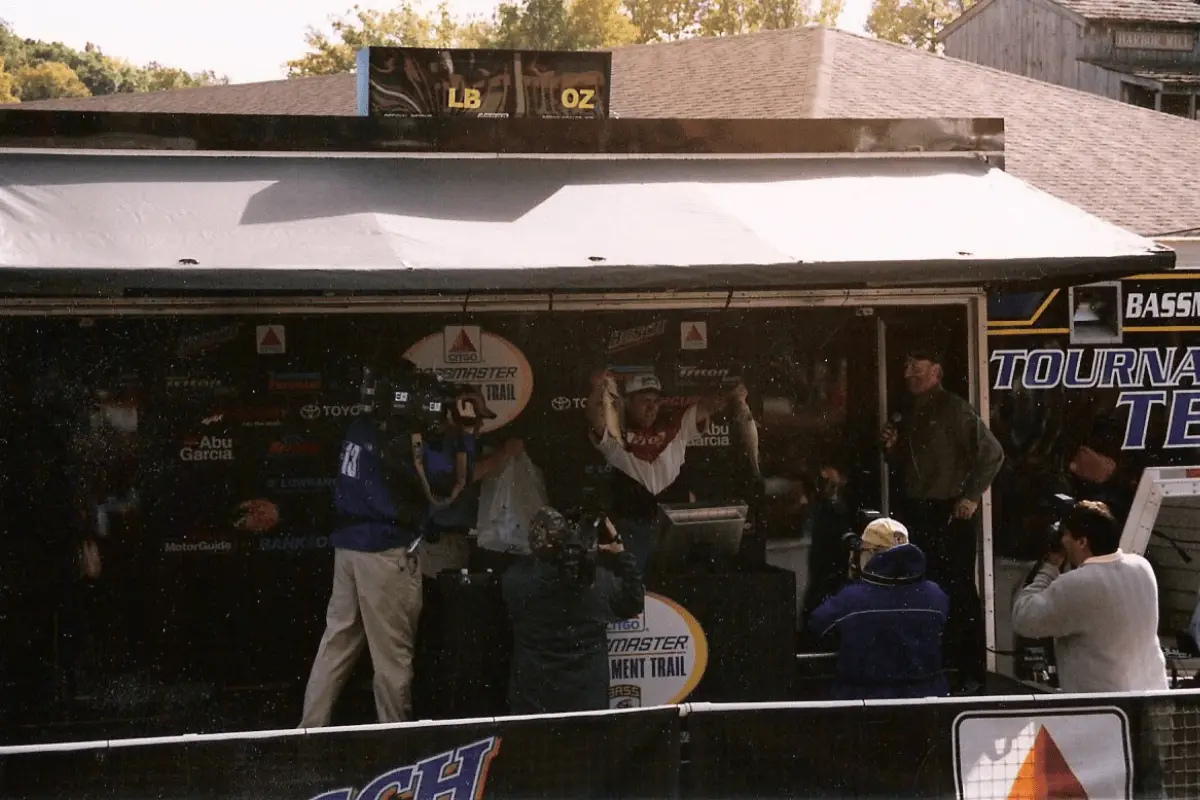For those who like to fish, this seems to be the perfect job. Traveling all around the country, fishing with the best products, running a tricked out bass boat, and calling the outdoors your 9-5 office are all very appealing. There are literally thousands of folks every year who are chasing this dream, but if you are serious about it, what are some steps that you can take to make that dream into an occupation?
To make fishing for cash a reality, there are several key steps you need to think about. First, how are you going to make a survivable income while you build your career? Second, are you somebody companies would want representing their products? Third, can you spend enough time on the water to hone your skills? If you can honestly answer those questions, below are some actionable steps to help you get there.
The Reality of Professional Bass Fishing
This is the part that people don’t want to hear, but if you understand the reality of choosing this career path, you can then take the right steps to make sure you are successful and see progress.
It Takes Time
This is not a road of overnight success. It takes time. Lots of time. Even those who appear to blossom on the professional ranks and are only in the late 20s, have spent a long time getting there.
It is Very Expensive
When we talk cost, most of the time people assume entry fees. And yes, these are pricey. The Bassmaster Open are at $1,500 per event and there are 4 events per division. If you fish one division, that is $6,000 just to buy the right to fish.
If you are fortunate enough to qualify for the Elite series, then the entry fees take a hefty jump. Currently, they are at $5,000 per event and 9 events.
When I fished the Opens, it wasn’t the entry fee that really piled on the cost, it was all the other expenses. Gas on its own can break you. I was spending over $500 a week just on fuel and that was at the low end.
Now add food, tolls, hotels or camping fees, etc. Also keep in mind, these are the expenses if everything goes right. I spent many hours on the side of the road with flat tires, busted serpentine belts, toasted alternators, blown powerheads, and numerous other costs.
It is Humbling
No one, and I mean no one, catches them all the time. I have competed against numerous Bassmaster Classic qualifiers and champions. They even have days where they walk to the weigh-in stage with only 1 fish.
You may think it was hard for everyone out there. Then you see somebody hold up a sack of fish breaking the twenty-pound mark. It makes you question everything you did and who you are.

Have a Plan to Make it as a Pro Angler
With all of that said, if this is something you want to do, you can do it, but you must have a plan. First, how are you going to support yourself while you hone your skills and work your way through the ranks?
I have fished against thousands of excellent anglers and they all had one thing in common: they had another source of income.
Most of them were self-employed business owners. Even at the very top level, those Elite Series and FLW Series anglers most likely have other jobs or sources of income. Here is a list of just a few: fishing guide, cattle rancher, pecan farmer, truck customizer, pump refurbisher, tackle manufacturer, and the list goes on. And guess what, all of these jobs are held by anglers that fish the top level tours.
It affords them the opportunity to avoid the hills and valleys in their income stream. They own the business, they are the boss, so they can plan their tournaments around their own schedules.
The second largest profession that I ran across was a firefighter. I don’t know the actual percentages, but it wouldn’t shock me if 20% of the anglers I fished against were professional firefighters as well. In this profession, the firefighters find their own replacements to cover their shifts if they are gone. They also work a crazy schedule, something like 24 hours on, 48 hours off. This allows them to negotiate with other firefighters to free up the time it takes to fish.
Really think about how you are going to support yourself. If you have a good financial plan for your income stream, your odds of making it go way up.
Learn Everything you Can
Be open minded. Go into this knowing you don’t know it all. Be thankful for what you learn and those who teach you. Arrogance kills careers faster than anything else in this sport.
Bass fishing is nothing more than experience. This experience is often found in the form of little tips and tricks that can be applied to different conditions. It sounds easy, but it takes a long time to garner a mental library of information that allows you to adjust and be successful on the water.
I learned the hard way about the subtle art of making sure your drag is set right on your baitcast reel when fishing crankbaits. If the drag is too loose, you won’t stick the fish, if the drag is too tight, the fish will pull off if it makes a run to the depths.
I was too stubborn to let a co-angler show me his version of a drop shot rig. I thought I had the fish dialed in with a jerkbait. The next day, I ate an entire humble pie as he filled his limit before I had one fish. Lesson learned. No one knows it all. Don’t be the one that thinks you do.
Spend Time on the Water
Every spare moment you have needs to be on the water. There is no greater teacher than being out there. It is easy to watch YouTube videos, talk to friends, and spend hours consuming Major League Fishing, but if you can’t ever get out there to practice then your skills will hold you back.
This is no different than any professional sport. Athletes spend many more hours practicing than they actually do playing the game.
Refine the Skills Needed to Compete as a Pro Angler
A rod and reel should feel like a natural extension of your own arm. You need to be able to pitch a jig into the smallest areas silently, and with precision. Skipping a lure under a dock needs to be something you do without a second thought.
The nice thing is, you can practice these skills on a dock, from a boat, or even in your own yard. I set up concrete blocks the same height as the distance from a bass boat deck to the water. Next, I placed cups in front of me on the grass. I then stood on top of those blocks and practiced, practiced, and practiced some more. Before long, I could put that bait where I wanted it over 99% of the time. This directly corresponds to how many fish you will actually catch.
Sponsor Relations
You need to have companies that support you, but that is not going to happen at a significant level until you can prove you are worth their effort and money. If you win a local club tournament, no company is going to sponsor you. It is not that easy.
Let me tell you an actual story that will help put this into perspective. When I was doing television, I had to meet with my sponsors on a regular basis to plan out upcoming shows, where we would travel, etc.
While sitting in the office of the person in charge of pro-staff for one of the largest companies in the industry, he asked me, “Steve, you want to have a little fun?”
Of course, I said, “Sure.”
He reached over to a phone on the desk and turned up the volume on the answering machine. Keep in mind, this is before email was really big.
That phone never stopped ringing. Message-after-message was left with guys calling up asking for sponsorship programs.
My friend told me that they literally get thousands of those calls a year. That is what you are competing with.
You need to prove that you can sell product and make a relationship worth their time. Dollars drive the business. Period.
This takes time to build sponsor relations and it needs to be approached with care and caution. The fishing industry is very small. Burn a bridge or two and it’s over. Never ask for something, ask what can you do to help.
Final Thoughts
You can do this. I believe that everyone can follow their dreams and get where they want to go, but it doesn’t happen instantly.
Figure out how you are going to keep an income stream, practice like crazy, start small and work your way up, and be humble.
My last advice is to surround yourself with people who will support your goals and not crush them.
I had close family members tell me that I couldn’t host a fishing show that aired nationally. I turned that negativity into the drive to film nearly 100 episodes and air a program for five years that ran from coast-to-coast.
Be an angler that others love to be around and they will give you the encouragement to reach for the stars. Good luck!

